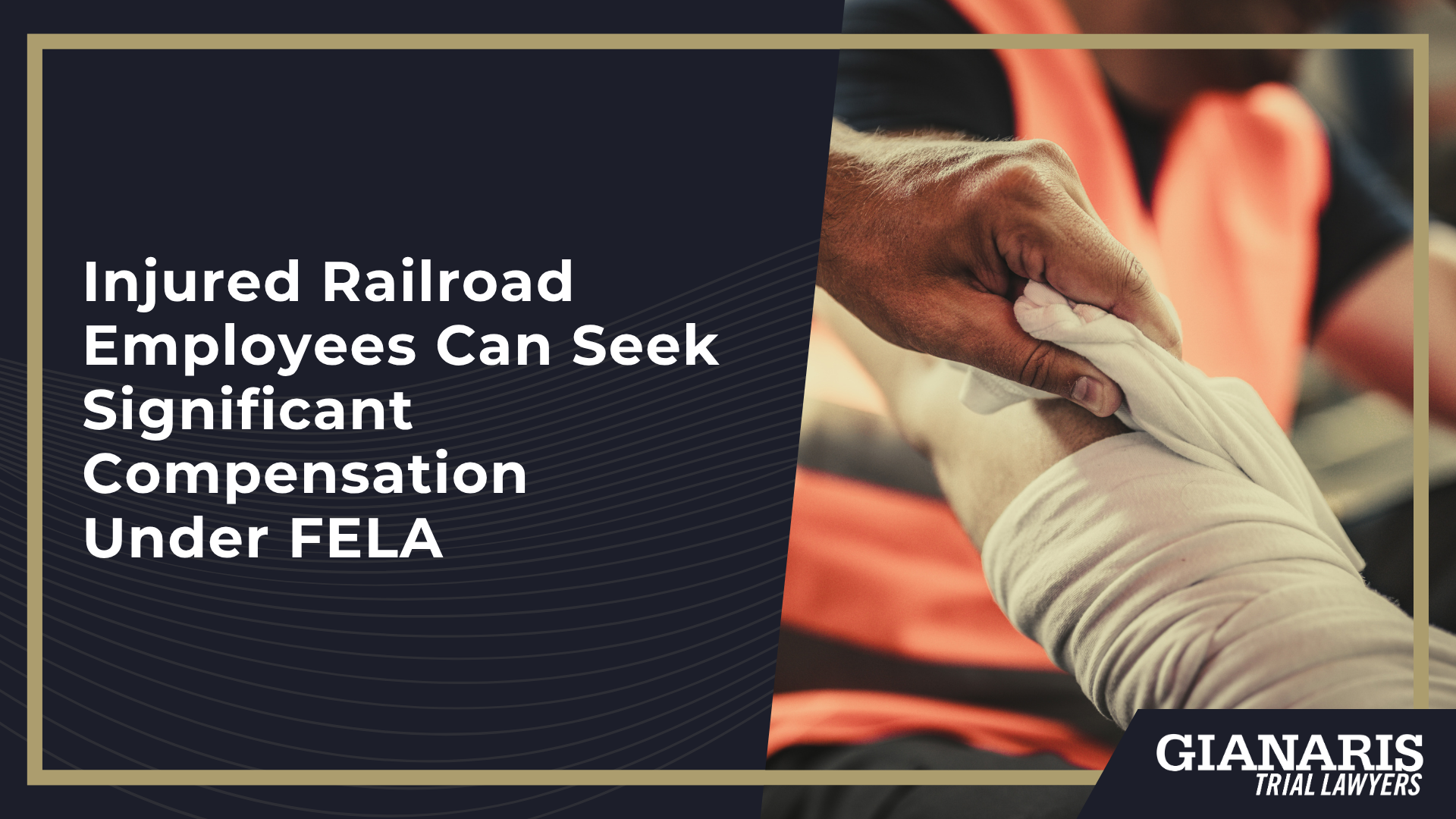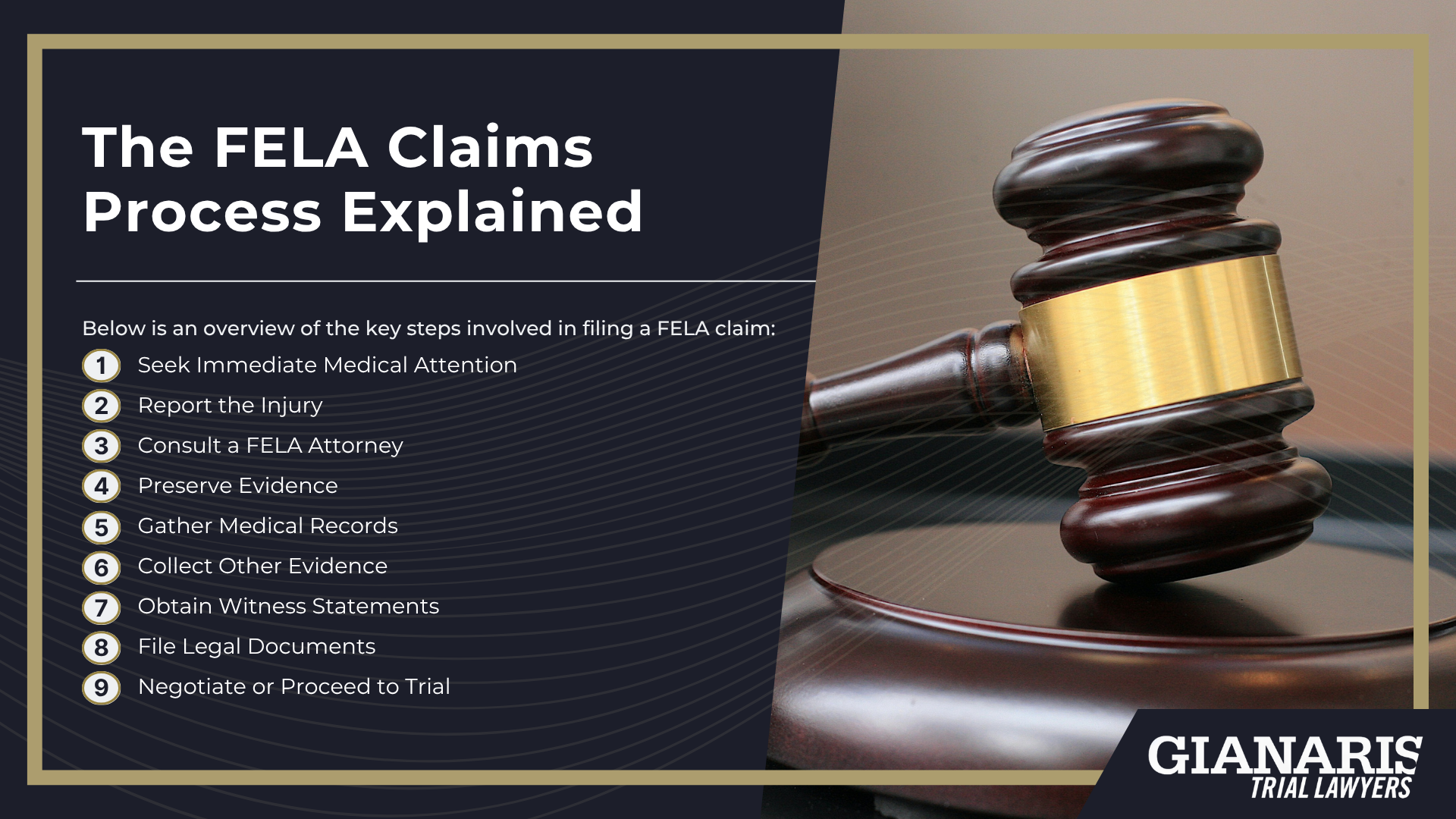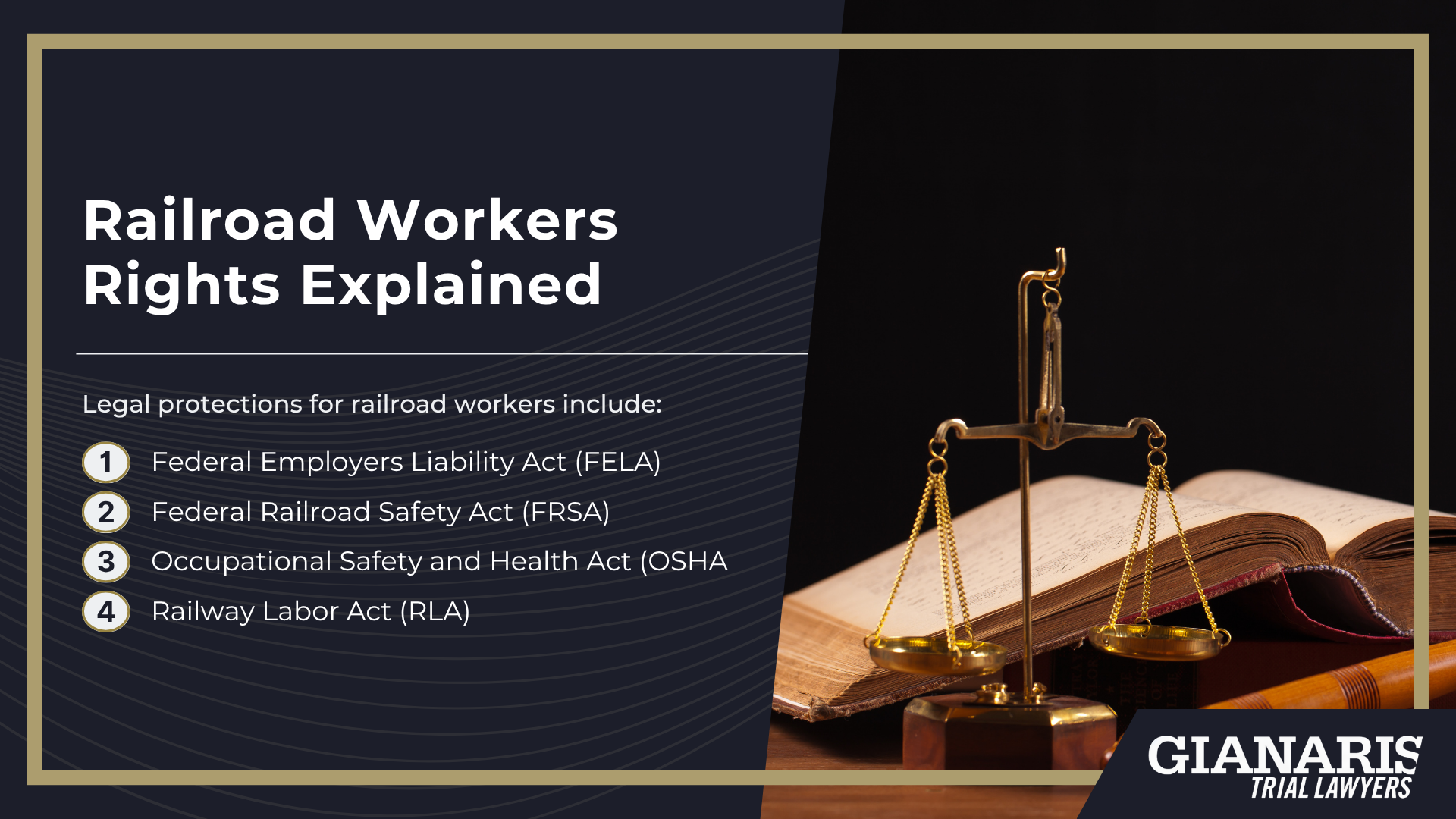The Federal Employers Liability Act (FELA) is a federal law that allows injured railroad workers to pursue compensation when their injuries are caused by their railroad employer’s negligence.
Unlike traditional workers’ compensation systems, FELA covers a broader range of damages and requires proof that the employer’s negligence played some role—no matter how small—in causing the injury.
FELA covers both acute injuries from workplace accidents and long-term illnesses, including cancer, caused by toxic exposures.
Because railroad worker injuries often result in physical disability and lasting impacts, the financial stakes are high.

A successful FELA claim can result in compensation for both economic and non-economic losses, including those not available under workers’ comp.
The law recognizes the inherent dangers of the railroad industry and provides a legal pathway for injured railroad employees to recover damages that reflect the full scope of their losses.
With the help of an experienced FELA attorney, workers can protect their rights and seek fair compensation for the harm they’ve suffered.
Gianaris Trial Lawyers provides expert legal representation and guidance, proving negligence on the part of the railroad company and pursuing significant compensation for railroad workers.
Contact us today to learn more.
We’re here to help you.
Types of Damages in FELA Claims
FELA is designed to make injured workers whole by compensating them for both direct financial losses and the broader impacts of their injury or illness.
Because it is a fault-based system, a successful FELA claim may result in significantly higher compensation than what is available under standard workers’ compensation.
This includes coverage for long-term health needs, pain, and the effects of being unable to return to work.
Whether you were injured in a derailment or developed cancer from years of exposure, FELA allows you to hold the railroad employer accountable.

Below are common categories of damages that FELA covers:
- Medical Expenses – Including hospital bills, specialist visits, rehabilitation, and long-term care related to the injury or illness.
- Lost Earnings – Compensation for wages missed due to the inability to work and reduced future earning potential.
- Future Fringe Benefits – Loss of health insurance, retirement contributions, and other employment-related benefits due to the injury.
- Pain and Suffering – For physical pain and emotional distress associated with the injury or illness.
- Loss of Enjoyment of Life – Damages for limitations in daily life, hobbies, and personal relationships.
- Permanent or Partial Disability – Compensation for a physical disability that alters a worker’s quality of life or ability to work.
- Wrongful Death – In cases of fatal accidents or occupational illnesses, families may seek damages for loss of support and companionship.
Each FELA case is unique, and the value of a claim depends on the nature of the injury, the extent of negligence, and the impact on the worker’s life.
How Much Compensation Can You Seek in a FELA Case?
Determining a specific dollar amount in a FELA case is challenging because every injury and illness unfolds differently depending on the circumstances, severity, and long-term impact.
Some workers may suffer immediate physical injuries that require surgery and rehabilitation, while others—especially those exposed to toxic substances—may develop cancer or chronic diseases years later.
The value of a claim also depends on factors like the extent of the railroad employer’s negligence, the worker’s age and income at the time of injury, and the cost of future medical care and lost earnings.

Proving damages in cases involving long-term illnesses like mesothelioma, lung cancer, or neurological conditions adds complexity, often requiring expert medical opinions and in-depth analysis of lifetime care needs.
As we’ve mentioned above, FELA allows for both economic and non-economic damages, including pain and suffering, emotional distress, and the loss of enjoyment of life, which are inherently difficult to quantify.
The legal strategy, strength of evidence, and jurisdiction can also affect the final award or settlement amount.
Given all of these factors, compensation in a FELA case can vary widely.
Settlements and verdicts may range from $25,000 for relatively minor injuries to well over $1 million in cases involving catastrophic harm, permanent disability, or fatal occupational disease.
An experienced FELA attorney can evaluate your individual case to provide a more accurate assessment.
How is FELA Different from Standard Workers’ Compensation?
FELA differs significantly from standard workers’ compensation in both process and potential compensation.
Unlike no-fault workers’ comp systems, FELA requires injured workers to prove that their railroad employer was at least partially responsible for their injury.
This fault-based structure allows for greater financial recovery, especially in cases involving serious or permanent harm.
Claims under FELA can be brought in either state or federal court, giving the injured worker more flexibility in legal strategy.
Because FELA is tailored to the unique risks of railroad work, it provides broader protections for workers injured on the job.
The law allows recovery for not only economic losses, but also non-economic damages, which are typically not available under workers’ compensation.

Differences between FELA and standard workers’ compensation include:
- Proof of Fault – FELA requires evidence of the railroad’s negligence; workers’ comp does not.
- Broader Damages – FELA allows recovery for pain and suffering, lost future earnings, and more.
- Court Access – FELA claims can be filed in state or federal court; workers’ comp is handled administratively.
- Jury Trials – Injured railroad workers may present their case to a jury under FELA.
- Higher Awards – Compensation under FELA is often greater due to the inclusion of full damages.
- Limited to Railroad Industry – FELA applies specifically to railroad employees, not the general workforce.







